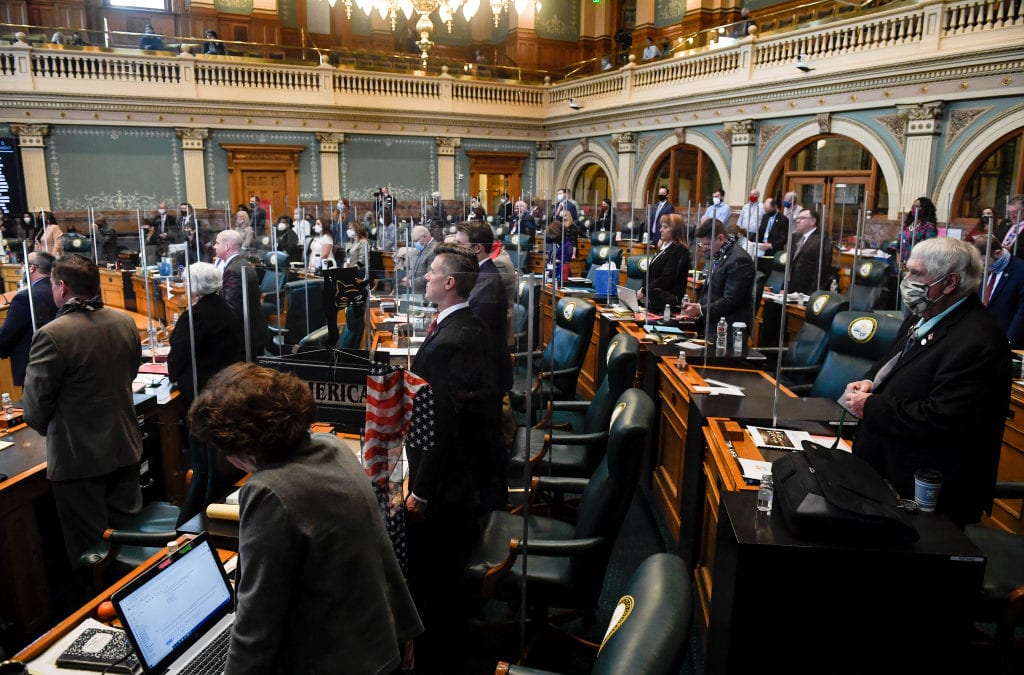Colorado’s main political leaders are walking back some of last year’s austere cuts in the early days of the pandemic, calling Wednesday’s newly announced $700 million in proposed one-time spending a “bold stimulus package” that’ll invest in things like infrastructure, small-business tax relief, agriculture and broadband access.
Gov. Jared Polis, the state’s top Democrats and Republicans and three small business owners gathered at the governor’s mansion to announce the legislation, which will be funded by some of the $3.5 billion in budget cuts lawmakers made last year. Turns out, as The Post reported earlier this week, the state’s revenue estimates are way better than expected (though the full accounting won’t be available until March 19).
“We prepared for the worst, and that was the prudent thing to do,” Polis said Wednesday afternoon. “… Thankfully, those worst-case scenarios didn’t come to pass.”
The news conference started not long after the U.S. House sent to President Joe Biden a giant stimulus bill that will bring Colorado roughly $4 billion in federal money; another $2 billion or so will go to Colorado’s counties and cities.
The state’s new proposed spending adds to the about $300 million in state aid that lawmakers passed in December, and is on top of the billions Colorado received from the federal government since the pandemic began.
Here’s a rough breakdown of where the proposed state funding will go in the next 12-18 months, from most money to least, with more details expected in the coming days. Of course, the bill must pass the House and Senate, and be signed by Polis before any money is doled out.
“Shovel-ready” infrastructure, $170 million: Improvements for projects like including Denver Metro west Interstate 70 bridges and the Eisenhower-Johnson Memorial Tunnels.
Housing and community revitalization, $78-105 million: Between $60-80 million will go toward matching funds for downtown spaces and sustainable affordable housing in urban areas; $10-15 million for grants to temporarily house people who are experiencing homelessness; $8-10 million for affordable housing incentive program.
Broadband investments, $50-75 million: Expanding broadband internet infrastructure in rural Colorado.
Restaurant sales taxes, $40-50 million: The sales tax deduction for restaurants could be extended an additional four months.
Colorado startup loan fund, $20-30 million: Funding for historically underserved entrepreneurs to fill needs created by the pandemic.
Investments in ag supply chains, $20-35 million: Upgrading rural agriculture infrastructure for processing plants, storage and distribution; promote “emerging crops” like hemp.
Schools, $16-22 million: $5-10 million for K-12 school tutoring and summer program assistance for students whose education gaps were exacerbated by the pandemic; $8-9 million for mental health screening in schools; $3.4 million for educator licenses.
This is a breaking story and will be updated as more details are made available.
This content was originally published here.

